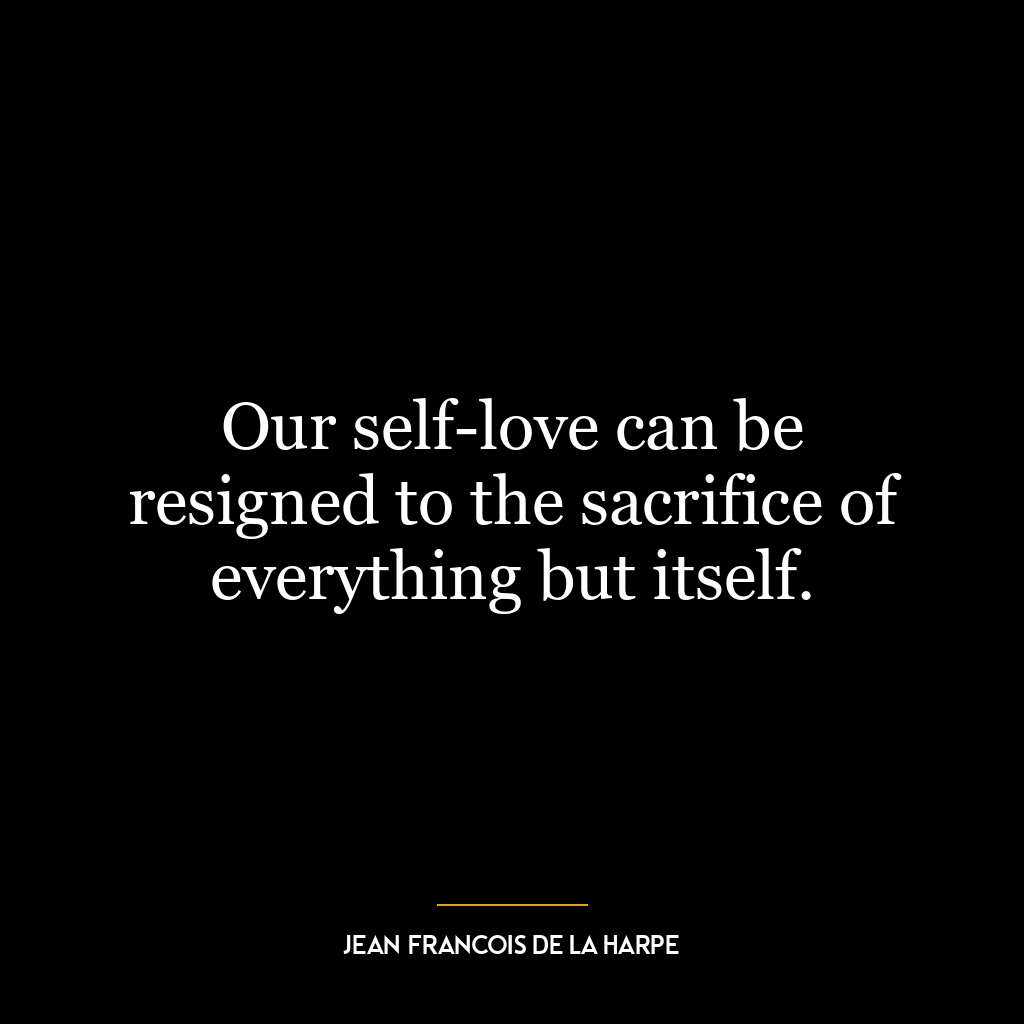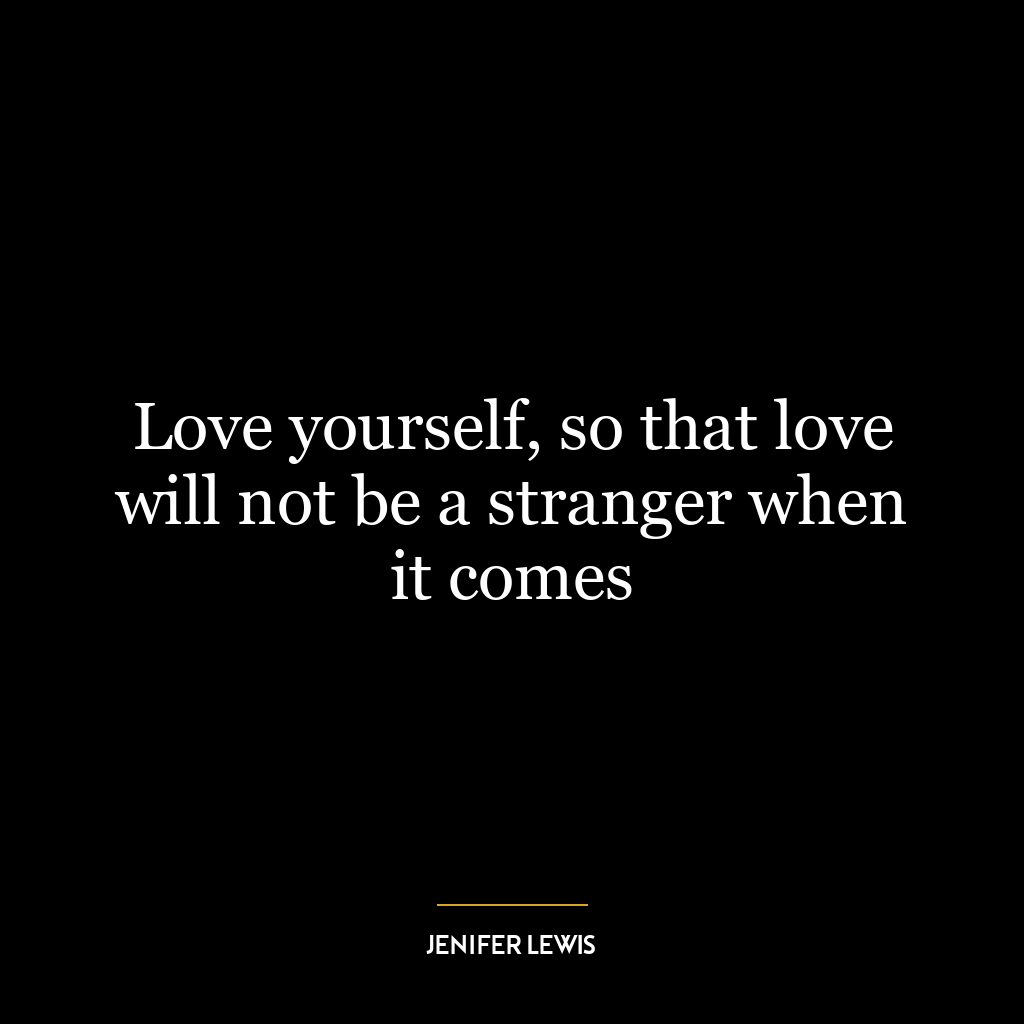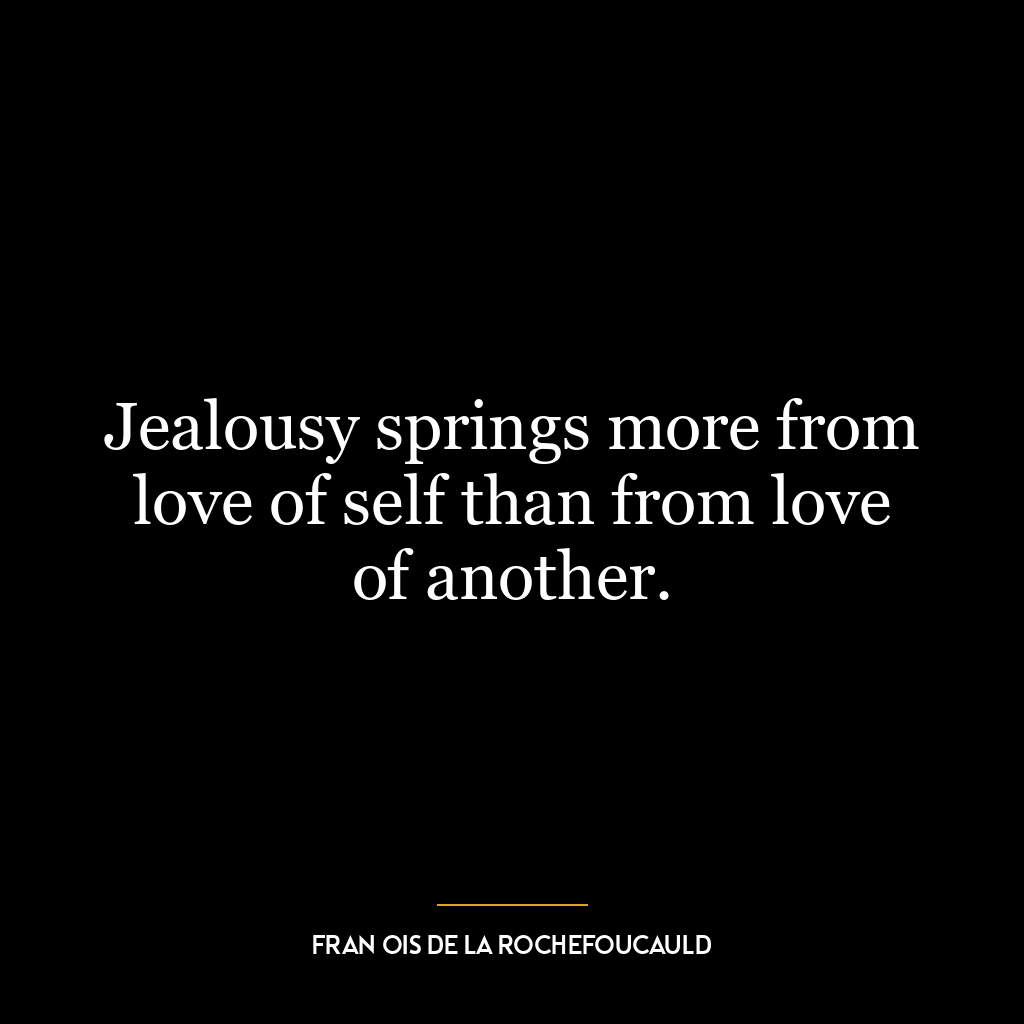It is not love that should be depicted as blind, but self-love.
This quote suggests that love, in its true form, is not blind but rather all-seeing and accepting. It is self-love that is blind, as it often fails to see our own faults and limitations.
The term “love is blind” is often used to describe how people in love can overlook the faults or shortcomings of their beloved. However, the quote argues that it’s not love that blinds us, but our own self-love or narcissism. We are often blind to our own faults and failings, but can easily point out those of others. This is because self-love can lead to an inflated sense of self and an inability to see ourselves objectively.
In the context of personal development, this quote emphasizes the importance of self-awareness. It suggests that we must strive to see ourselves clearly, with all our strengths and weaknesses, rather than through the distorted lens of self-love. Only then can we truly grow and improve as individuals.
In today’s world, this idea is especially relevant given the rise of social media and the culture of self-promotion it encourages. It’s easy to get caught up in presenting an idealized version of ourselves to the world, while ignoring our own flaws and areas for improvement. This quote serves as a reminder to remain grounded and self-aware, even in a world that often encourages self-obsession.











